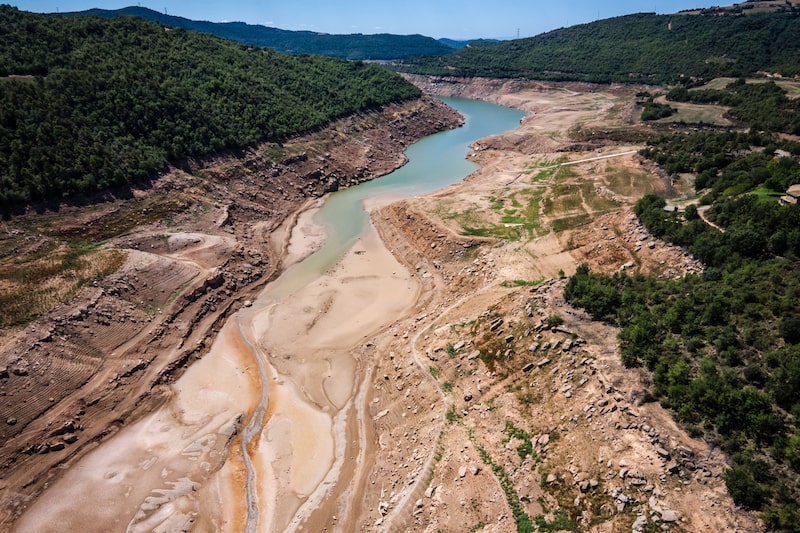Bogotá — Some 72% of Colombians believe that climate change has already had a serious effect on where they live, above the global average of 56%, according to an Ipsos survey for the World Economic Forum (WEF).
“The survey finds notable regional differences within the various countries where it was measured, likely reflecting recent experience with extreme heat, drought, forest fires or floods,” the French research firm says.
The results of this survey come amid a debate that Colombia has proposed regarding the conservation of the Amazon rainforest, and for which the country’s President, Gustavo Petro, proposed the creation of a global fund of about $1 billion per year.
“If you do not have the capacity to finance the fund for the revitalization of the forests, if it is more important to allocate money to weapons than to life, then reduce the foreign debt to free our own budgetary spaces and with them carry out the task of saving humanity and life on the planet. We can do it if you don’t want to. Just exchange debt for life, for nature,” Petro proposed before the United Nations General Assembly last week.
“I call on you to save the Amazon rainforest,” Petro said in his speech, part of which was tweeted by the Colombian presidency on September 20.
Likewise, the tax reform proposed by Petro seeks to raise some 25 trillion pesos ($5.4 billion) by 2023 through the payment of higher taxes by the wealthiest and also by the extractive industries, while seeking to tax the export of oil and coal.
According to the Ipsos survey, Colombians are among the Latin Americans who have most felt a serious effect on their territories due to climate change, only behind Mexico (75%).
In Chile, the percentage of people who expressed this perception is 69%, followed by Brazil (63%), Peru (62%) and Argentina (55%).
Globally, Ipsos found that 71% of those surveyed expect climate change to have a severe effect on their territory in the next 10 years.
In Latin America, this view is mostly held in Mexico (86%), followed by Chile (85%), Colombia and Peru (76%), Argentina and Brazil (71%).

Ipsos also surveyed people about their perception of the possibility that climate change will cause displacement of people around the world.
On this topic, 35% of those surveyed considered it likely that they would be displaced from their homes as a result of climate change in the next 25 years.
Forty-nine percent of Brazilians surveyed considered this a probability, while 37% of Mexicans, 35% of Peruvians and Chileans, 33% of Colombians and 21% of Argentines considered it a possibility.
The survey was conducted in 34 countries between July 22 and August 5 through Ipsos’ Global Advisor online platform.
There is a 40% probability that the Earth’s average annual temperature will warm by 1.5°C in the next five years, above pre-industrial levels, according to the UN.
As extreme weather events become increasingly disconcerting, the scientific and environmentalist community are pointing to the possible causes of the phenomenon.
In a recent interview with Bloomberg Línea, the director of government relations and international affairs of WWF Colombia, Ximena Barrera, said the world has been “feeling the effects of climate change for years, only now they are becoming more accentuated in magnitude, frequency and intensity”.
“The climate crisis will not be solved by national governments alone (...) The only possible escape from the climate crisis is still in our hands and the best thing is that it is guided by science. In other words, the real scientific opportunity is to keep our feet on the ground and move urgently and exponentially along the path of resilient, low-carbon development,” Barrera said.






